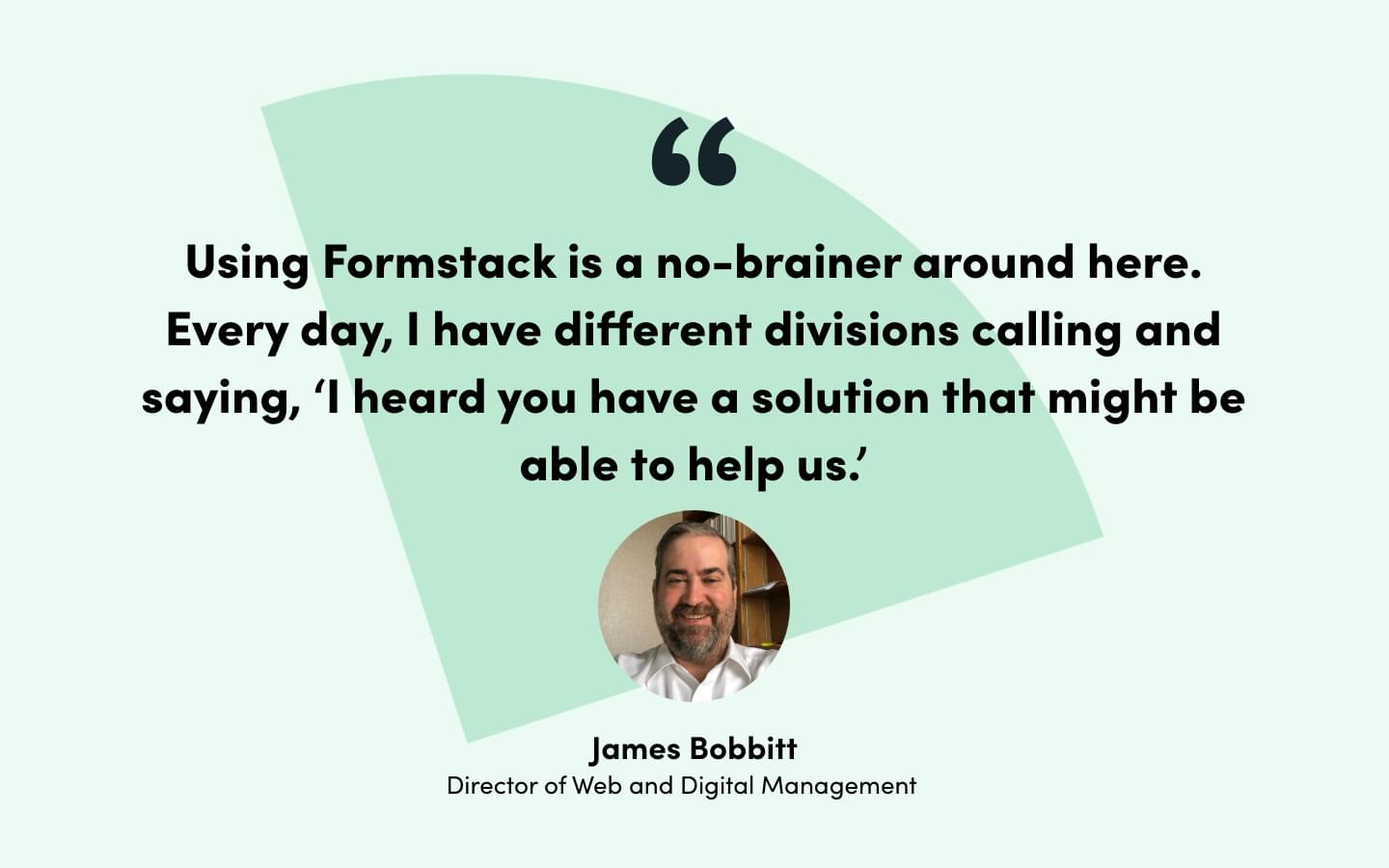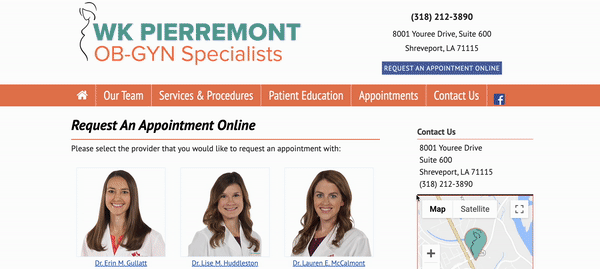Did you go into healthcare because you want to help others? For many healthcare professionals, this is what gets them out of bed and into the hospital every morning. Yet there’s one thing that most dread: paperwork.
Whether you’re a nurse, a doctor, an office worker, or a technician, paperwork is one of the most frustrating parts of working in healthcare. An incredible amount of time goes into capturing, inputting, correcting, and storing patient data every day. It’s time-consuming and tedious, especially if it’s through paper or PDFs.
But there is a better way.
Digitizing Patient Data Collection
James Bobbitt, Director of Web and Digital Management at Willis-Knighton Health System, understands the struggles that come with collecting patient data. For the past 15 years, he’s focused on improving the patient and provider experience for the largest healthcare provider in northwest Louisiana.
“We are a hub-and-spoke model, meaning that we have five hospitals, which are the hub, but we have close to 140 physician clinics out there that are the spokes,” he said. “We have roughly 100 websites.”
Managing this level of workload is no simple feat. Streamlining data collection across hundreds of locations, multiple websites, and more than 7,000 employees isn’t easy. Yet James has found that Formstack makes collecting, managing, storing, and sharing patient data simple. “In all my years, this is the best tool I've ever purchased. And I tell people all the time, ‘If you're not using it, you need to be looking at it and using it, because it is powerful.’”

Over the past year, James has used Forms and Documents to transform systems and processes across the Willis-Knighton Health System. Here’s a look into just a few of the ways he’s used Formstack to improve patient data collection, cut down data processing time, and “make everything more convenient for the patient.”
Patient Onboarding
Coming into this year, Willis-Knighton’s goal was to improve the patient onboarding experience. They wanted to not only make onboarding more convenient for the patient, but improve data collection speed and quality overall.
With so many specialty care clinics and multiple locations, it was necessary to find a tool with strong conditional logic and adjustable branding. It was also important to invest in a platform that was easy for a small team to scale, since James supports all locations and departments.
Within weeks, he built an online patient onboarding process and launched it at 75% of Willis-Knighton’s locations. According to James, the HIPAA-friendly forms provide “better patient data, as well as a better experience and visit for the patient.” Patients, doctors, and back office staff are all incredibly pleased with the new process, thanks to how easy and efficient it is. “It was a quick win, and everybody agreed that this was the way to go.”

Insurance Verification
When clinics across the Willis-Knighton system began using Formstack for their patient onboarding, they cut the processing time down by 25 minutes. One crucial part of this achievement was using an online workflow for insurance verification.
Patients can now upload their insurance information whenever is convenient for them through secure online forms. They no longer need to have their card scanned and saved during check-in at the front desk.
This saves a huge amount of time for patients and office staff alike. Plus, there’s now a single and secure repository that makes it easy for any location to access patient insurance information within moments.
Get Started: Insurance Verification Form Template
Secure Patient Documents
Willis-Knighton uses CRM and EHR systems to keep track of patient information. It was incredibly important to find a solution that could not only integrate seamlessly with these tools, but produce secure and compliant documents that could be stored within those systems.
“The integration is so great because it allows us to send that data over, and when it arrives in the clinic email or inbox, it's the form that our clinics are used to,” James explained. “It's also the authorized medical record that they can input into the EHR for the patient.”
Using Forms and Documents, front office staff, nurses, and physicians can all easily input data through an online form and then automatically generate secure patient documents. James creates the document template once, then it can be automatically populated over and over without any additional formatting, coding, or editing. “Using Formstack is a no-brainer around here. Every day, I have different divisions calling and saying, ‘I heard you have a solution that might be able to help us.’”

Appointment Requests
Providing patients a quick and easy way to book appointments online is key to producing an exceptional self-service experience. When you manage booking appointments across more than 140 locations, this process can get complicated quickly.

Yet James has been able to use Formstack to build out an appointment request workflow that serves many Willis-Knighton Health System doctors. Patients can easily find the doctor they need, from a cardiologist to an OBGYN, and request an appointment within just a few minutes. The form automatically sets the location based on the doctor’s specific branch, then the information is routed to the correct back office staff for booking.
Digitization is a powerful healthcare tool. Get expert tips and inspiration now:
Top Ways to Reimagine Your Digital Front Door in Healthcare
How to Automate Healthcare Workflows with No-Code
Digital-First Healthcare Delivery
Digitize Healthcare Workflows Without Risking a Data Breach
Patient Surveys
Before adding Formstack to Willis-Knighton’s tech stack, it would require hours or even days to spin up a patient survey. Now, it takes just minutes to get a solution out the door. “People come to me with a problem, and an hour later, they have a working solution,” James explained.
From pre-op and post-op surveys to patient satisfaction questionnaires, doctors can now easily gather the data they need from patients to make informed and important decisions around care. Patients can submit their information from the device that works for them, whether that’s a desktop, tablet, or even their phone.
Related: 4 Tips to Amplify Your Patient Satisfaction Surveys
Improve Patient Data Collection
It’s been less than a year since Willis-Knighton began using Formstack, but they’ve already seen huge value in Forms and Documents. “It is always great to find a tool that just makes life so much easier,” James said.
Thanks to its ease of use and customization, Formstack has become James’s tool of choice anytime a colleague has a data collection problem to solve. Who knows what processes they’ll transform next through the power of Forms and Documents!
Want to learn how your healthcare facility can use Formstack to improve the patient experience? Connect with our healthcare experts now to discover new ways to safely collect, store, and share patient data.











